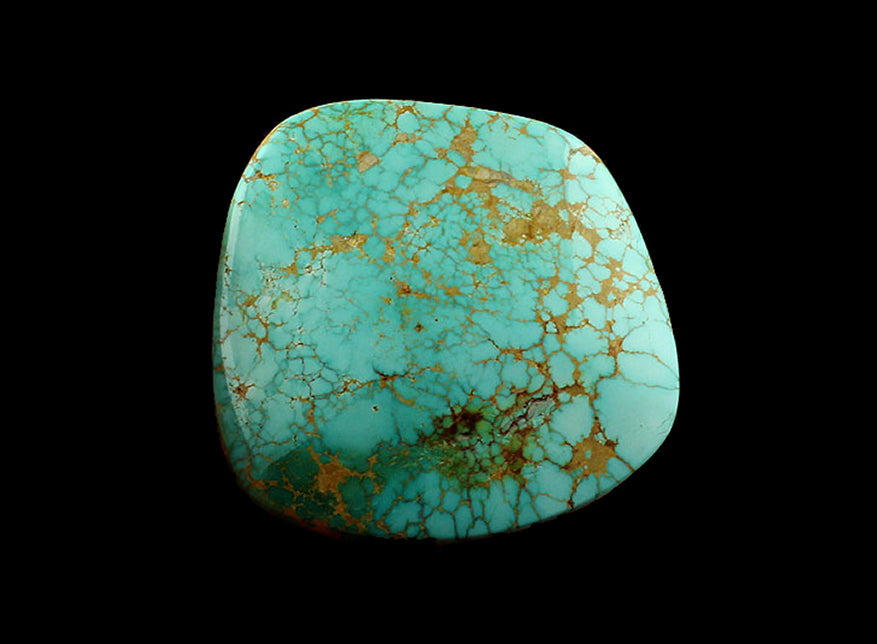TURQUOISE
The name Turquoise is derived from the French, pierre turquoise, meaning 'Turkish stone', because the trade routes that brought Turquoise to Europe from the mines in central Asia went through Turkey, and Venetian merchants often purchased the stone in Turkish bazaars. Turkish warriors used Turquoise to adorn their swords, their armor, and their horse's bridles and saddles. They believed these amulets protected them specifically from injuries associated with falling.
Early Native American tribes associated Turquoise with the god of the sky, and shamans relied on the stone as a conduit between heaven and Earth. Specifically, they used it to channel the healing energies of the cosmos. The Apaches fashioned amulets and charms out of turquoise and used these charms to decorate their arrows, believing that the powerful stones improved aim and accuracy.
Southwestern tribes believed the stone attracted life-giving water. Both the Lakota-Sioux and the Navajos used the sea-green stone in their rainmaking rituals. These rituals invited the rain god to release heaven's waters upon the earth.
In Greece, Greek maidens wore the sea-green stone as a symbol of their purity. In England, maidens offered gifts of turquoise to their lovers as a symbol of enduring love. In Russia, the blue-green stones symbolized love. In Tibet, the stone's shift in color from blue to green represented the cycle of life and death.
Turquoise is one of the birthstones for the month of December and is heralded as the stone of communication. It encourages enthusiasm, thus inspiring new projects and bringing to light undiscovered artistic abilities. Turquoise also provides understanding and encourages attention to detail while attracting prosperity and success.



